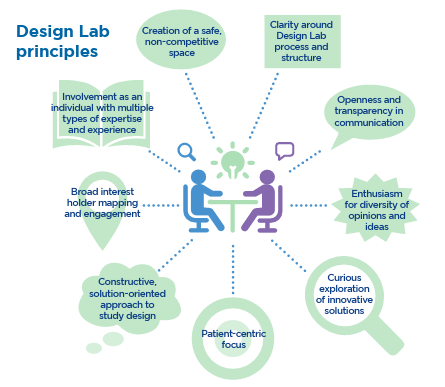Overview
The T32 Fellowship Program offers research training for scholars and clinicians with an interest in clinical and translational research. These prestigious, NIH-funded programs provide stipends and
full tuition for the Clinical and Translational Science (CTS) Graduate Program.
Postdoctoral T32 fellows will earn an MS in CTS, with the possibility of a PhD. Predoctoral T32 fellows will earn a Certificate (1 year), MS (2 years), or PhD (3+ years) in CTS.
In addition to a general CTS fellowship, Tufts CTSI offers three specialized tracks (see below): Predictive Analytics and Comparative Effectiveness Research; One Health; and Health Policy and Health Outcomes.
Types of Fellowships
Fellows may choose to enter a general translational science track or choose from one of three specialized tracks:
Predictive Analytics and Comparative Effectiveness Research (PACER) Track
Track Leader: David Kent, MD, MS The Predictive Analytics and Comparative Effectiveness Research (PACER) track aligns with our emphasis on the learning healthcare system and aims to inform healthcare decisions by providing evidence about which treatments work best for which patients under what circumstance. This track includes the core analytic disciplines undergirding the Learning Healthcare System, including advance prediction methods, methods for deconfounding in observational comparative effectiveness research and methods to better understand heterogeneous treatment effects.
Select PACER track mentors (non-exhaustive list):
Stephen Fortmann, MD
Zoher Ghogawala, MD
Michael Hughes, PhD
Lesley Inker, MD, MS
David Kent, MD, MS
Timothy McAlindon, MD
Anastassios Pittas, MD, MS
Paola Sebastiani, PhD
Jenica Upshaw, MD, MS
Benjamin Wessler, MD, MS
One Health Track
Track Leader: Carl Kirker-Head, Vet.M.B., DACVS, DECVS
One Health research addresses challenges that threaten humans, animals, and the environment, and this track provides opportunities for fellows to participate in the core clinical and translation research program and then pursue research in this important area. Previous studies have crossed the medical, veterinary, public health, nutrition, and environmental science fields and interdisciplinary mentoring teams have been assembled to guide fellows as they conduct their research. Examples of recent research studies include investigating antimicrobial resistance risk factors in hospitalized canine and feline patients, prevalence of tick-borne diseases in ticks collected in New England, helminth exposure in families raising livestock in India, and the role of migratory bird populations in the transmission of highly pathogenic avian influenza. Veterinarians, physicians, and environmental science graduates are encouraged to apply to the CTS Graduate Program and pursue research through the One Health track.
Select One Health track mentors (non-exhaustive list):
Bree Aldridge, PhD
Akram Alshawabkeh, PhD
Michael Chin, MD, PhD
John Coffin, PhD
Abby Fleish, MD, MPH
Cheryl London, DVM
Jonathan Runstadler, DVM, PhD
Honorine Ward, MD
Health Policy and Health Outcomes Track
Track Leaders: Robert Sege, MD, PhD and Cindy Thomas, PhD
The Health Policy and Outcomes track aims to train leaders in “practice to policy” translational research and develop trainees’ ability to investigate health differences in their scholarly work. While the US is the world leader in biomedical innovation, it continues to underperform other economically-developed countries in terms of healthcare outcomes, access, quality, and cost. Additionally, given that some patient groups have persistently worse outcomes, it is critical that the CTS Graduate Program equips research trainees with the concepts and technical skills to identify and address these issues in the US. This track leverages institutional partnerships with RAND, the Heller School at Brandeis University, and Tufts CTSI faculty with expertise in practice to policy translational engagement and advocacy.
Select Health Policy and Health Outcomes track mentors (non-exhaustive list):
Ndidiamaka Amutah-Onukagha, PhD
Chloe Bird, PhD
Joshua Cohen, PhD
Thomas Concannon, PhD
Karen Freund, MD, MPH
Keren Ladin, PhD, MSc
Mary Jo Larson, PhD
Pei-Jung Lin, PhD
Peter Neumann, ScD
Susan Parsons, MD
Lucy Savitz, PhD, MBA
Robert Sege, MD, PhD
Cindy Thomas, PhD
Biomedical Data Science Track
Track Leader: Paola Sebastiani, PhD
The Biomedical Data Science track emphasizes multidisciplinary training in biostatistics, bioinformatics and data science with a mix of theoretical and rotation-based training. With this training, students will learn how to leverage statistical, bioinformatics and data science methods to discover information from genetic and molecular studies that can be translated into targets for intervention and contribute to disease prevention and population health improvement.
Who is Eligible?
Applicants for postdoctoral fellowships are doctoral-level scholars and clinicians (e.g., DMDs, DVMs, MDs, PhDs, ScDs). Postdoctoral fellows must apply to the CTS MS or PhD Program.
Applicants for predoctoral fellowships are already enrolled in a doctoral program (e.g., MD, DVM, DMD, PhD, or ScD) or will enroll in the CTS PhD Program. Predoctoral fellows who are already enrolled in a doctoral program may choose to apply to the CTS Certificate, MS, or PhD Program.
All fellowship recipients must be US citizens or permanent residents and must submit an online application through the Tufts University Graduate School of Biomedical Sciences.
Benefits
In addition to stipend and full tuition, all fellows will experience:
- A superb cross-disciplinary research training environment to broaden your expertise
- Mentorship by esteemed faculty members
- Ample opportunities for publication and networking
- Seminars, symposia, academic rounds, journal clubs
How to Apply
Submit an online application through the Graduate School of Biomedical Sciences. In your personal statement, please specify the fellowship that interests you.
Deadline
Applications must be completed by May 1. Early submissions are highly encouraged.
Fellowships will begin on July 1.
Contact
David M. Kent, MD, MSc, Program Director
Elizabeth Leary, PhD, Senior Program Manager
The T32 Fellowship Programs are supported by the National Center for Advancing Translational Sciences, National Institutes of Health, Grant Numbers T32TR004417 and T32TR004418. The content is solely the responsibility of the authors and does not necessarily represent the official views of the NIH.



